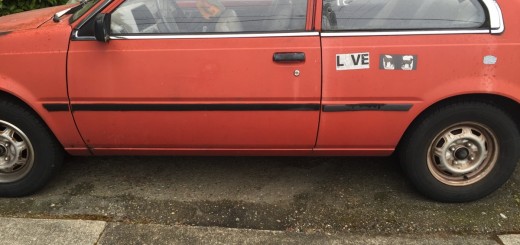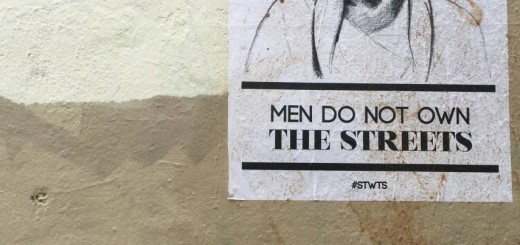VIII: Value

TW: extreme animal violence
This is a story about evil.
What an opener. I guess I should preface that. I am, for lack of a more descriptive term, a moral relativist. There isn’t any right or wrong in my world, and certainly no good or evil: if I’m forced to use the terms, it’s out of convenience and linguistic necessity; it gets to be a pain to preface every statement with a foray into my personal ethics.
One thing I enjoy about much of the work director Hayao Miyazaki has done with Studio Ghibli is that it features characters who fit very well into that realm. Unlike the majority of mainstream American animation, there are no “bad guys” or “good guys.” There are characters who take actions selfishly, and endanger or encumber others; there are characters who are helpful and benevolent, but not necessarily without reproach.
In my humble opinion, humanity is a lot like that. People commit crimes, they do a whole host of awful things to each other– but on the whole, with very few exceptions, they themselves are not evil. And conversely, people who perform mostly “evil” actions are still capable of kindness, can be merciful, have shown love.
Part of me understands why many don’t see it that way. It’s easier to see people as categories, to condemn them and be done with it. Avoid the evil people. Find the good people. Also, it’s scarier still to think that you’re capable of evil. It goes against your idea of a person to think that someone you love deeply could be a murderer, or whatever. And it might even scarier to think that a hardened criminal has the capacity to do selfless and valiant and caring things, because we have to recontextualize our punishment of that person.
I’m not going to talk about prison reform, because I promised you a story.
Evil takes the form of an aging (60? 65?) white woman with fluffy brown salt-and-pepper hair and a long-sleeved athletic shirt that zips in the front. To stereotype, she looked like the kind of lady you’d ask about what soil conditions would be ideal for your heirloom tomatoes, or recommendations for a well-written memoir. She shall be known from this point as Diabolus Incarnate, or DI for short.
DI foolishly revealed her Satanic nature when speaking to another woman of seemingly similar age in public, who shall be known as Beverly.
Beverly and Diabolus Incarnate were talking about moles.
Beverly: I’d just like to get rid of them.
Diabolus Incarnate: Well, let me just say– these [mole chasers] don’t work. They say they do, and they don’t. Most of the time your neighbors are going to just chase them back into your own yard. I know a great way– but, well, it’s awful.
Beverly: I’ve tried trapping and I’ve tried the poison too.
DI: My way, well, it gets rid of them all right, it just isn’t very nice.
Beverly: Does it kill them?
DI: Yes, but it happens– it doesn’t kill them quick. If you really don’t like the bastards, though, you could do it.
Beverly: What do you suggest?
Diabolus Incarnate becomes visibly more animated at this point.
DI: Okay, so what you need to do– you take [some kind of knife/tool], the kind you use for carpet, and you put it the holes they use, and you cover it up, just put all the dirt back on it.
Beverly: Uh-huh.
DI: And when they try to come back through, what happens is– they dig right through it, and it just tears their little paws right up. And then, what they do. They die of infection, because of their paws.
Beverly: Oh.
DI: Like I said, it’s not fast, but they do die, and it works well. They don’t come back.
Beverly: Have you tried this?
Diabolus Incarnate sounds shy and pleased with herself, like a kindergarten child with a gross show-and-tell.
DI: I have done this, yes. And I’m telling you, I tried it all, I was right where you were now. I’ve still got the poison and the lot of it all in my yard, and this is the only thing that’s actually worked.
This is the point where I had to stop listening because of a pressing need to vomit.
I’ve of course heard that moles could be a “problem.” But ass someone who has never owned a house, let alone property, I knew that I was uneducated about this, and maybe I was missing some key reason that it would be worthwhile to kill an animal by wounding it and waiting for it to die from infection. So I Googled it.
Key points: they “have the potential to ruin your lush-green, meticulously manicured lawn” with their tunnels/holes. Which, in turn, could create a trip hazard.
That’s it. Really.
They’re also credited with eating bulbs of your garden plants, but it turns out that they’re actually completely insectivorous, and the garden-eating can typically be attributed to other beasties that are totally keen on their tunnels.
I won’t bother going through a list of the benefits that it turns out they have on soil and planting areas, because I don’t believe that victims should have to defend themselves.
On a first-page Google search, you can come across forums where beleaguered homeowners share their indignation about these pests and preferred ways to dispatch them. I’ll share some here.
“Get em down and cut their throats!”
“I put fire crackers in the hole it drives them out and bang 12 gage”
“I bought two boxes of moth balls. I did not disturb the tunnel. Just poke a hole in and drop in the moth ball.”
“juicyfruit gum. break it in small pieces and put in the holes and tunnels and cover them or step on the dirt. they can’t digest it and they blow up and die in the tunnels, no mess”
“You cut a potato in half and stuff Rattex pellets into the potato halves”
And on. I know, we’ve been over this. Don’t read the comments, Adelle. But usually that’s because the internet is full of jerks that are bad at arguing, not… this.
The forgiving, equanimous part of me knows that this is largely a question of value. Having a sweet lawn is relevant to social status, not to mention the hard work that it takes to maintain it. What terrifies me about this isn’t that a gentle old lady successfully rationalized that an animal’s life was less valuable than her lawn: it’s that I don’t think she ever had to rationalize it at all.
It was… for lack of a better word… “natural.” Of course she had the right to kill an animal for making her life absurdly inconvenient. It was her property. It isn’t so much that Diabolous Incarnate didn’t care about the moles’ lives. It was that she hadn’t even considered their lives were worth caring about.
This problem is everywhere. It’s easy not to think about it. But every human, every person on this planet, in the room with you or I right now, has a capacity for ‘evil’– for killing their own moles. Imagine a Venn diagram, and consider where thoughtlessness, entitlement, and privilege overlap. Can you see it? In my zone of overlap, I’ve got “buying a bottle of water even though I own a reusable water bottle”, “flushing spiders because they scare me”, and “being more frustrated at giving my leftovers to a homeless person than I would be letting them rot in my fridge.” Are any of these things more or less evil than killing moles?
I guess that depends if you’re the mole, a person who lives in a drought-ridden city being exploited by water companies, an arachnid slowly drowning, or a vagrant desperately trying to get a job while grappling with mental illness and societal bias.
I value my own life. As an egalitarian critter, I also value your right to your own life, and moles’ rights to theirs. And yes, I’m a moral relativist, so I don’t try to claim that there is an objective right and wrong. But ignoring or refusing the idea that your actions have impact on the world around you, or allowing your powers to exert dominion over the life or life-quality of others, saying boorishly my experience has more value than yours– that turns my stomach. It makes me ashamed that on the whole, my species seems to value individual comfort over, well… just about anything else.
There’s evidence that suggests climate change moderation spending is happening in ways meant primarily to protect wealth, not people. Adaptation is happening not just anthropocentrically, but GDP-centrically. We are worried about protecting cities, “the defining ecological phenomena of the 21st century”, and if there’s a place you value that isn’t a major city, that doesn’t house infrastructure or facilitate trade? Thumper the Super-Cool Ski Instructor said it best: “You’re gonna have a bad time.”
So where does this leave Olympia?
Value seems to be the deciding factor. Obviously, adapting to a changing climate has a monetary value– money that some people would rather spend on schools, infrastructure or other enriching projects. (Because we’re doing so good at that already.) There’s the value of preserving the memory and association of a current city weighed against the value of relocating to a less vulnerable area. There’s the value of maintaining the highest quality of life while you’re alive weighed against the value of making sure other generations have the same ability.
Thoughtlessness. Entitlement. Privilege. Unfortunately, those categories more often than not overlap with “power.” Holders of power have the luxury of deciding what is most valuable. If you’re lucky, maybe that might include your home.
















1 Response
[…] VIII: Value […]